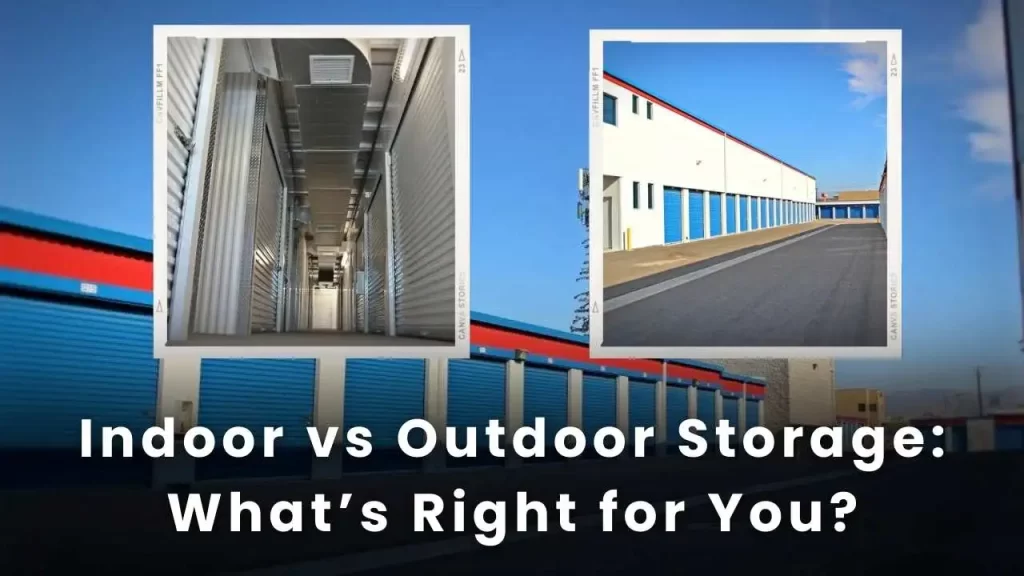
In the fast-paced world of business, every square foot counts. Yet, amidst the focus on productivity and efficiency, one crucial element often gets overlooked: storage space. It might seem like a mundane detail, but adequate storage solutions play a surprisingly vital role in a company’s success.
The Benefits of Dedicated Storage
1. Increased Efficiency and Organization:
Imagine a workplace cluttered with overflowing file cabinets, unused equipment, and seasonal inventory. This disorganization not only creates a chaotic atmosphere but also hinders productivity. Dedicated storage space allows businesses to declutter their work areas, keeping essential items readily accessible and freeing up valuable floor space for core operations.
2. Improved Inventory Management:
For businesses that deal with physical products, inventory management is paramount. Storage space becomes a crucial element in this process.
- Seasonal Storage: Seasonal products don’t need to occupy valuable retail space year-round. Storage facilities provide a cost-effective solution for storing seasonal inventory, ensuring it’s readily available when needed.
- Bulk Purchasing: Businesses can leverage bulk discounts by purchasing inventory in larger quantities. Secured storage allows them to store excess stock without compromising on-site space.
- Improved Stock Control: Dedicated storage areas with proper organization systems facilitate better inventory tracking and control. This minimizes the risk of stockouts and helps maintain optimal inventory levels.
3. Enhanced Professional Image:
A cluttered workspace can create a negative impression on clients and potential partners. Dedicated storage solutions ensure a clean and organized work environment, projecting a professional image that fosters trust and confidence.
4. Cost Savings:
While the initial cost of renting storage space might seem like an additional expense, it can lead to significant savings in the long run.
- Reduced Office Space Needs: By utilizing storage facilities, businesses can potentially downsize their office space, leading to lower rent or lease costs.
- Improved Asset Protection: Secure storage safeguards valuable equipment and inventory from damage, theft, or environmental factors. This minimizes replacement costs and ensures the longevity of assets.
5. Legal and Compliance Considerations:
Many businesses are legally obligated to retain certain documents for extended periods. Dedicated storage ensures safe and secure archiving of essential documents, helping businesses comply with legal and regulatory requirements.
6. Scalability and Flexibility:
As a business grows, its storage needs inevitably evolve. Storage facilities offer scalability, allowing businesses to adjust their storage capacity as required. This flexibility eliminates the need for frequent office relocations or equipment upgrades.
7. Disaster Recovery:
Unexpected events like natural disasters or fires can be devastating for a business. Off-site storage provides a safe haven for crucial documents, inventory, and equipment, facilitating a smoother recovery process in the event of a disaster.
Types of Storage Solutions for Businesses
1. Traditional Warehouses:
Large-scale warehouses are ideal for businesses with sizeable inventory or equipment needs. These facilities often offer temperature-controlled environments and advanced security features.
2. Self-Storage Units:
Self-storage facilities provide a cost-effective option for businesses with smaller storage requirements. They offer a variety of unit sizes and climate-controlled options to suit specific needs.
3. Mobile Storage Units:
Mobile storage units offer a convenient option for businesses with temporary storage needs. These units are delivered directly to the business location and can be easily transported when no longer required.
Choosing the Right Storage Solution
The ideal storage solution for a business depends on several factors:
- Storage Needs: The quantity and type of items that need to be stored will determine the size and type of storage space required.
- Accessibility: Consider how often employees or customers will need to access stored items. Opt for a storage solution that offers convenient access when frequent retrieval is necessary.
- Security: The level of security required will depend on the value and sensitivity of the items being stored.
- Budget: Storage costs can vary depending on the type of facility, location, and size of the unit. Businesses should carefully evaluate their budget to make an informed decision.
Optimizing Storage Space Utilization
Here are some tips to maximize the utilization of your storage space:
- Implement a labeling system: Clearly label shelves, containers, and boxes for easy identification and retrieval of stored items.
- Utilize vertical space: Take advantage of wall space by installing shelves or cabinets to maximize storage capacity.
- Employ space-saving solutions: Invest in stackable containers, hanging organizers, and overhead storage units to optimize vertical space.
- Conduct regular inventory audits: Regularly review stored items to identify unused or obsolete inventory. Dispose of unnecessary items to free up space for essential ones.
- Embrace digital solutions: Consider digitizing documents and records whenever possible to minimize physical storage requirements.
- Utilize consolidation techniques: Consolidate similar items into fewer containers to reduce wasted space. This also simplifies organization and retrieval.
Conclusion
Storage space, often considered a mundane detail, is a critical factor in ensuring smooth business operations. By implementing efficient storage solutions, businesses can achieve improved organization, inventory control, cost savings, and disaster preparedness. Strategically utilizing available storage space and embracing technology for management enhances overall efficiency and paves the way for a more successful and resilient business.


